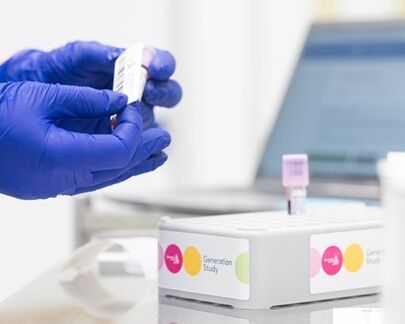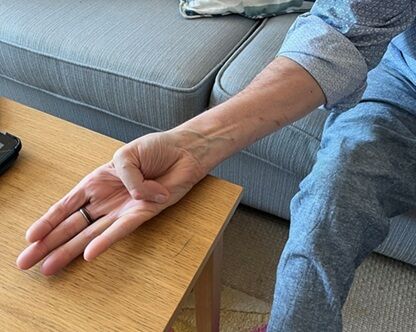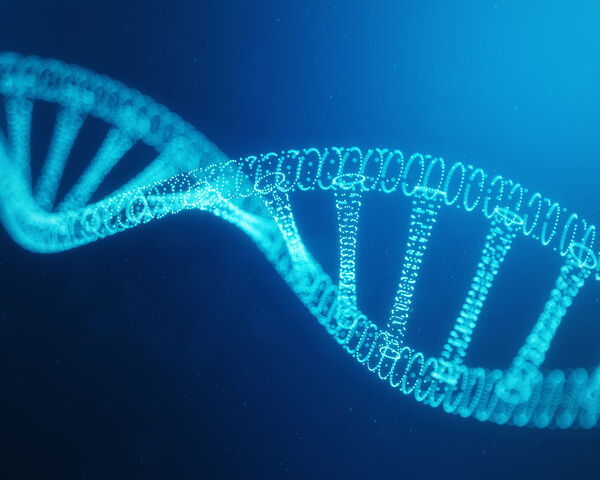Cancer experts call for public help to ‘turn the tide’ in battle against sarcoma
- Urgent call issued for more people with sarcomas to help unique research project
- Genomic trial on the cusp of improving diagnoses and survival rates for the rare & complex cancer
- Genomic science already producing personalised treatments for some sarcoma patients
- Oncologists urged to include genomic sequencing of sarcoma tumours as part of routine treatment
A leading cancer expert and support group are calling for the public to help ‘turn the tide’ and improve survival rates for one of the most rare and complex types of the disease – sarcoma.
July is Sarcoma Awareness Month, and a unique genomic research project into sarcoma – a rare cancer that can affect any part of the body – is underway to try to quicken diagnoses and help doctors distinguish sarcoma from other types of cancers.
Whole genome sequencing (WGS) and artificial intelligence technology is being used to analyse the genomes of 1,500 sarcoma samples collected from participants from the 100,000 Genomes Project to help diagnose and distinguish it from other cancers.
The outcomes from the project could help the 15 people a day diagnosed with sarcoma in the UK – and while progress has been made, researchers urgently need more samples so they can continue to learn about the disease.
“Very little is known about why this cancer develops because sarcoma is so rare, with 100 different recognised sub-types, and it’s more genomically complex than most other cancers,” says Professor Adrienne Flanagan, who is leading the project at the University College London (UCL) Cancer Institute.
“We’re using genomic sequencing to look at what is driving the sarcoma. There aren’t any drugs specifically developed to treat this type of cancer, so we’re examining the genomic data to see if there are existing drugs that can be repurposed to treat it.
"Although we’re learning more about sarcoma, we need more samples donated so our research can continue. Having a ‘critical mass’ of data from each of the different sarcoma types will help us understand why sarcoma develops.
“Some sarcomas are so rare that there are no more than ten cases diagnosed in the UK each year. Doctors need to be able to diagnose one type of sarcoma from another to offer the best possible treatment. If we can continue to learn more about the different types of tumours and what makes each one different, we’ll be able to offer patients tailored treatments for their particular tumour type.”
The use of genomic science to produce personalised medicine is beginning to benefit some sarcoma patients. 35-year-old Rachel Gilbert has an incurable and incredibly rare sub-type of sarcoma. Over the past 20 years she’s had 16 stomach tumours removed, along with 90% of her stomach.
In 2017, she had her genomes sequenced and the results helped identify the most suitable treatments for her, along with ones she wouldn’t be able to tolerate. The process indicated that Rachel’s type of sarcoma could be hereditary, enabling her family to be screened. It also highlighted she was at a higher risk of developing other rare cancers, which she is now screened for annually.
“Genomic testing has been really helpful to myself and my family,” she said. “It’s reassuring to be regularly screened for other cancers and to know that my doctors are using the best information available to them to treat me, as sometimes in the past, treatment would make me really sick. It may also be useful for my family to be screened to see if they are more at risk of developing cancer.”
Sarcoma UK, the country’s leading sarcoma charity, is also backing the call for other sarcoma patients to join the research project and help “turn the tide” and improve our knowledge of one of the least well understood forms of cancer.
The prognosis for the UK’s sarcoma patients has changed very little over the past 40 years, with a five-year survival rate of just 55%. Late diagnosis and the fact it is so rare, are key factors – it makes up just 1% of the UK’s cancers.i
“Lack of awareness means that sarcoma is often diagnosed at the late stages which is costing lives,” said Dr Sorrel Bickley, Sarcoma UK’s Director of Research, Policy and Support. “The later a sarcoma is diagnosed, the fewer options there are available for treatment and the higher the chance of that treatment not working. Current research is vital for helping to unlock the secrets of this disease and to improve quality of life and treatment for people.”
Professor Flanagan believes doctors have an important role in bringing about the change needed. She wants more oncologists to consider WGS of sarcoma tumours as part of routine treatment – currently, tissue samples and a blood test are taken by doctors or radiologists in hospital.
“The newness of WGS and sometimes a lack of awareness is holding some doctors back from using WGS as part of routine care, even though the test is now available on the NHS,” she said. “Doctors can play a vital role in offering this test to more suitable patients and their families and by doing this, providing a larger pool of data for researchers to be able to learn more about the disease to benefit participants.”
ihttps://sarcoma.org.uk/about-us/stay-connected/for-journalists/


